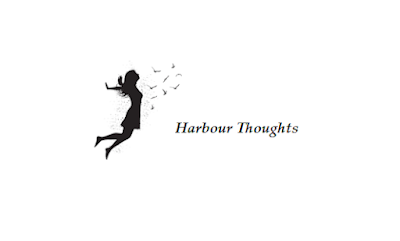No One Shall Return
By H.R. Bandaharo
the masses march towards the day
the mass I represent
the sorrows and sufferings of my times
lie heavy on my shoulders
no one shall return
though death awaits ahead
this road leads on to the break of dawn
and stirring, peaceful chants
our aspirations give birth to love
directly drunk from life
no one shall return
though death awaits ahead.
Source: Contemporary Progressive Indonesian Poetry, 1962
Poem Analysis:
H.R. Bandaharo's poem No One Shall Return captures the essence of collective struggle and the relentless pursuit of a better future, even in the face of death. Through vivid imagery and a powerful emotional landscape, the poem explores themes of sacrifice, hope, and the transformative power of communal aspiration.
Theme of Collective Struggle
The poem opens with the line, “the masses march towards the day,” immediately establishing a sense of collective action. The use of the word “masses” emphasizes the power of unity and the strength derived from collective purpose. Bandaharo articulates the weight of responsibility that comes with this representation, stating, “the sorrows and sufferings of my times / lie heavy on my shoulders.” This sentiment encapsulates the burden of history and the emotional toll of bearing witness to injustice and suffering.
The notion of marching toward the day symbolizes hope and the pursuit of a brighter future. The phrase suggests not only a physical journey but also a metaphorical one—one that reflects the aspirations of a people striving for change. The speaker’s identification with the masses reinforces the idea that individual struggles are intertwined with the larger historical context.
Confrontation with Death
The refrain, “no one shall return / though death awaits ahead,” serves as a stark reminder of the sacrifices involved in the pursuit of justice and freedom. This line conveys a sense of inevitability and courage, highlighting the willingness to confront death for a greater cause. The repetition of this phrase emphasizes its significance, acting as both a warning and a rallying cry.
The acknowledgment of death adds a layer of gravity to the poem, suggesting that the struggle for a better world is fraught with peril. However, rather than deterring the speaker and the masses, this awareness of mortality fuels their determination. The idea that “no one shall return” underscores the commitment to move forward, regardless of the potential consequences.
Hope and Aspiration
In contrast to the somber acknowledgment of death, the poem also imbues a sense of hope and optimism. The line “this road leads on to the break of dawn” signifies a new beginning and the promise of transformation. The imagery of dawn evokes feelings of renewal, suggesting that even in the darkest times, there is the possibility of light and rebirth.
The mention of “stirring, peaceful chants” further emphasizes the idea of collective hope. The chants represent the voices of the people, united in their aspirations for a better future. This unity transforms their struggles into a source of strength, as expressed in the line “our aspirations give birth to love.” The act of drinking life directly from these aspirations symbolizes an engagement with existence that is both profound and transformative, infusing the pursuit of justice with vitality and purpose.
Structure and Language
The poem is structured in a simple yet impactful manner, with short lines that create a rhythmic flow. This structure mirrors the steady march of the masses, emphasizing the idea of movement and progression. The repetition of key phrases, particularly “no one shall return,” reinforces the central themes of sacrifice and determination.
Bandaharo’s language is both evocative and accessible, allowing the reader to connect emotionally with the poem. The use of vivid imagery—such as “the break of dawn” and “stirring, peaceful chants”—creates a strong visual impact, drawing the reader into the emotional landscape of the poem. The contrast between sorrow and hope is skillfully woven throughout, enriching the overall narrative.
A Testament to Resilience
No One Shall Return by H.R. Bandaharo is a powerful exploration of the collective struggle for justice and the sacrifices inherent in that pursuit. Through its vivid imagery and emotional depth, the poem encapsulates the tension between hope and mortality, highlighting the resilience of the human spirit in the face of adversity.
The themes of collective action, confrontation with death, and the promise of a brighter future resonate throughout the poem, serving as a reminder of the power of unity and shared aspiration. In acknowledging the weight of history and the burden of suffering, Bandaharo not only honors the struggles of the past but also inspires a sense of hope for the future.
No One Shall Return stands as a testament to the indomitable spirit of those who march toward a brighter dawn, embodying the belief that even in the face of death, the pursuit of justice and love remains a noble and necessary endeavor. Through this poem, Bandaharo invites readers to reflect on their own roles in the ongoing struggle for freedom and justice, reinforcing the idea that together, we can forge a path toward a better world.
